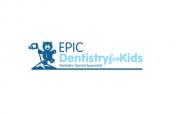At Epic Dentistry, we believe this is important and because of our unique relationship with our patients, we can help guide parents in deciding when the ideal time to begin treatment is.
Seven is the ideal age for the first consultation for many reasons. At this age, your child will have a mix of baby and permanent teeth, which allows us to see how your child’s smile is taking shape and learn more about the developing bite relationship.
While many children will not require any treatment at this young of age, for the children who may need treatment, early interceptive treatment can offer the most ideal and long-lasting results. While we can begin orthodontic treatment at any age, starting at this young age allows us to take advantage of a jaw that is still growing, giving us the opportunity to guide this growth to allow for adequate space for all erupting teeth and to create the most stable bite relationship.
Interceptive treatment, also known as two-phase orthodontic treatment, can put your child on the path to a healthier smile. The treatment is broken into two phases to allow for the growth of the jaw to be guided properly and then for all of the permanent teeth to erupt.



